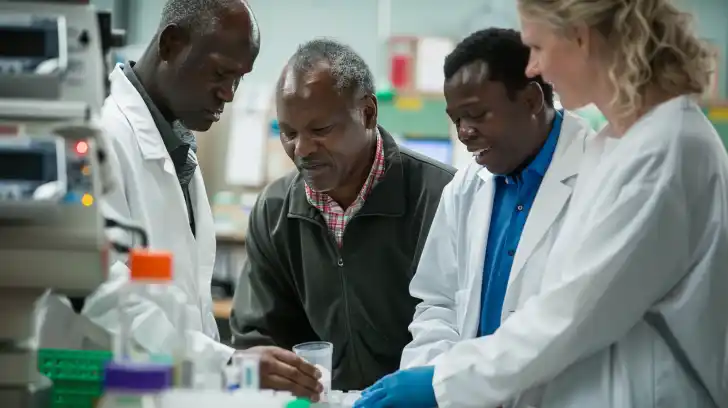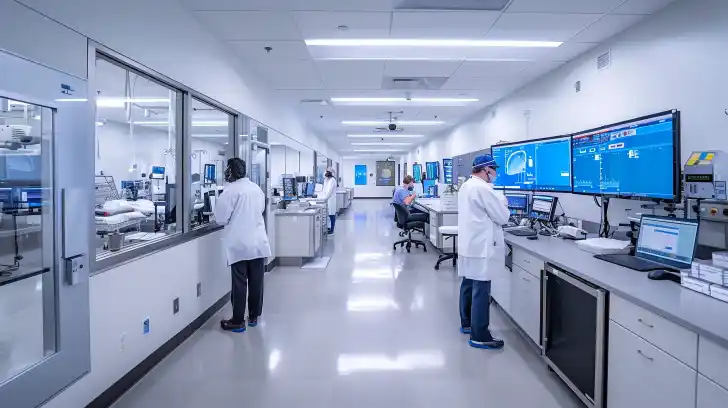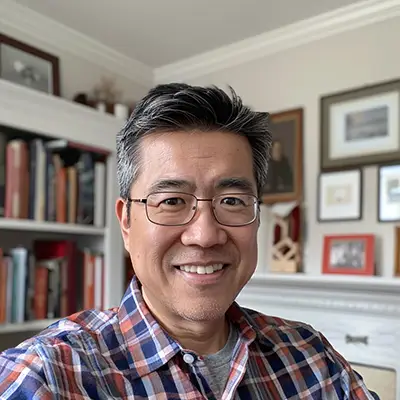Earn Money While Advancing Medicine – Unbelievable Clinical Trial Opportunities
Published on
6 minute read

Money is tight, but you want to make a difference. Surprisingly, you can do both by participating in clinical trials. These medical research studies pay volunteers while advancing treatments.
This blog post explores incredible clinical trial opportunities allowing you to earn cash and improve lives. Intrigued? Keep reading.
Key Takeaways
- Clinical trials are research studies that test new drugs, medical devices, or interventions on human participants to evaluate their safety, efficacy, and potential side effects.
- Participants in clinical trials play a crucial role in advancing medical science and developing safer, more effective treatments for various diseases and conditions.
- Participants in clinical trials can earn monetary compensation, ranging from a few hundred dollars to several thousand dollars, depending on the type of study, duration, procedures involved, and travel requirements.
- Clinical trials require diverse participants from different backgrounds, ages, and ethnicities to ensure that the findings are applicable to various populations and to enhance the generalizability of the results.
- Contributing to clinical trials not only provides an opportunity to earn money but also enables individuals to make a meaningful impact on healthcare and shape a healthier future for society.
Understanding Clinical Trials
Clinical trials help develop new treatments. They involve research studies on humans to evaluate drugs, devices, or interventions.
Participants play a vital role in advancing medicine. Their willingness to take part in trials contributes to scientific discoveries.

What are Clinical Trials?
Clinical trials evaluate new drugs and medical treatments. They test efficacy and potential side effects. Participants volunteer for different phases of trials. Phase I tests drug safety and dosage.
Phase II evaluates effectiveness. Phase III compares new treatments to existing ones. Phase IV monitors approved drugs long-term.
Trials follow strict protocols approved by ethics boards. All aspects safeguard participant rights and wellbeing. Informed consent ensures volunteers understand risks and benefits.
The Role of Participants in Clinical Trials
Clinical trials rely heavily on volunteers. Participants play a crucial role in advancing medical research and healthcare. Their involvement enables researchers to examine new treatments, drugs, and interventions.
Without participants, clinical studies cannot proceed, hindering progress.
Diverse participation enriches trial data, ensuring treatments benefit various populations. Researchers need participants from different backgrounds, ages, and ethnicities. This diversity enhances the generalizability and applicability of findings.
Participants contribute to developing safer, more effective therapies for everyone.
Clinical trials follow strict protocols approved by ethics boards. Researchers prioritize participant safety through screening, informed consent, and close monitoring. Participants actively contribute to scientific discoveries that improve human health.
Monetary Opportunities in Clinical Trials
People participate in clinical trials for various reasons. Monetary compensation provides a lucrative opportunity.
Clinical research organizations offer paid clinical studies across diverse therapeutic areas. Participants may earn money by enrolling in trials evaluating new medications, medical devices, or healthcare solutions.
The compensation amount varies based on factors like study duration, procedures involved, and travel requirements. Some clinical trials pay thousands of dollars for completing all study visits.

How much do clinical trials pay?
Clinical trials offer a way for people to earn money while also contributing to medical advancements. The compensation for joining a clinical trial varies widely, based on the type of study and the time commitment required.
Here’s a brief overview of what participants might expect in terms of payment for their involvement in clinical trials:
| Type of Clinical Trial | Compensation Range |
|---|---|
| Healthy Volunteer Studies | $150 to $13,000, with a median of $3070 |
| Specific Patient Group Studies | $500 to $1,875 |
| High Commitment Studies | Up to £10,000 for 40 hours |
This table indicates the broad range of possible compensations. Participants can earn from a few hundred to several thousand dollars. Payments depend greatly on the study’s demands and the potential risks involved.
Finding a paid clinical trial opportunity requires research and understanding the criteria for participation. The pay reflects the time and involvement necessary for the study, highlighting the valuable role participants play in advancing medicine.
Different Types of Paid Clinical Trials
Clinical trials offer payment opportunities. Participants receive compensation.
Distinct paid clinical trials exist:
- Drug Trials: Pharmaceutical firms test medications. Participants take drugs, report effects.
- Device Studies: Companies assess medical devices like pacemakers. Participants use devices, provide feedback.
- Healthy Volunteer Studies: Researchers need non-patient data. Participants undergo procedures, tests.
- Online Trials: Websites hire for surveys, app testing. Participants complete tasks remotely.
- Sleep Research: Laboratories analyze sleep patterns. Participants stay overnight for observation.
- Psychology Experiments: Universities study behavior. Participants complete assessments, simulations.
- Product Testing: Brands evaluate goods like skincare. Participants trial products, rate performance.
- Vaccine Trials: Developers need volunteers for new vaccines. Participants receive doses, report reactions.
Payment varies by study duration, procedures required. Longer, more involved trials compensate higher amounts. Safety measures protect all participants.
How to find a paid clinical trial opportunity
Individuals pursue paid clinical trials for various reasons. Some earn extra income. Others contribute to medical breakthroughs. Regardless of motivation, finding suitable trials requires proactive efforts.
- Check online clinical trial registries regularly. Sites like ClinicalTrials.gov and CenterWatch list many opportunities.
- Connect with local hospitals and universities. Major medical centers often conduct trials and recruit participants.
- Consult your doctor. Healthcare providers may know of relevant trials for your conditions.
- Join online communities. Forums discuss current paid studies across therapeutic areas.
- Search social media. Companies advertise trials on platforms like Facebook and Twitter.
- Contact research organizations directly. Private clinical operations firms welcome inquiries from potential volunteers.
- Respond promptly to listings. Paid trials have competitive enrollment due to compensation.
- Meet all eligibility criteria. Required factors like age, gender, and health status vary greatly.
- Prepare for screening visits. Sites assess participants through medical tests and interviews.

Advancing Medicine Through Clinical Trials
Clinical trials drive progress in medicine. They test potential treatments, devices, or preventive methods to fight diseases. Trials advance medical science by carefully evaluating new treatments.
Participants contribute invaluable data to research studies. Their role fuels breakthroughs and improves patient care.
Without clinical trials, medicine stagnates. Ethical trials validate new drugs, therapies and medical devices before public use. Trials determine safety and efficacy. They provide scientific evidence for regulatory approval.
Diverse participant pools strengthen trial results. Representation across ages, genders and ethnicities enhances generalizability.
Clinical trials ultimately benefit society. They enable cutting-edge, personalized healthcare solutions. Innovative trial models expedite approving groundbreaking therapies. Many lifesaving treatments emerged from clinical research.
Gene therapies, cancer immunotherapies, and mRNA vaccines exemplify medical advances propelled by clinical trials. Contributing to research accelerates medical progress.
Conclusion
Participating in clinical trials provides an exciting chance to contribute to groundbreaking medical discoveries while earning extra money. These unique opportunities allow individuals to play a vital role in advancing healthcare treatments.
By joining clinical research studies, volunteers gain valuable experience and insights into cutting-edge scientific endeavors. Seize this remarkable prospect to make a meaningful impact while supplementing your income.
Embrace the power to shape a healthier future.
While exploring ways to contribute to medical advancements and earn money, don’t miss out on opportunities to save on your energy bills with expert insulation tips for your attic.
FAQs
1. What are clinical research trials?
Clinical research trials involve human participants, also known as test subjects, to help advance scientific research and medical treatments.
2. What types of trials can I participate in?
You can participate in trials related to general medicine, neurology, psychiatry, sleep disorders, supplements, diets, skincare products, and even psychedelics research.
3. How do I sign up for a clinical trial?
You can create user profiles on clinical research networks and websites, which pharmaceutical companies and healthcare professionals use to find eligible participants.
4. Will I get paid for participating?
Yes, you can earn money by participating in clinical trials, with compensation varying based on the study’s duration and requirements.
5. Are clinical trials safe?
Clinical trials follow strict research ethics and guidelines overseen by review boards to ensure the safety and well-being of participants.
6. What are the benefits of participating in clinical trials?
In addition to financial compensation, you contribute to advancing medical knowledge, developing new treatments, and promoting patient-centric care while receiving free medical exams.
Source Links
- https://www.linkedin.com/pulse/7-ways-how-you-can-make-money-gain-experience-trials-gonzalez-md-ginge?trk=public_post
- https://www.fomatmedical.com/news-posts/making-money-with-clinical-trials-unlocking-the-potential-of-medical-research
- https://finance.yahoo.com/news/lab-bank-account-9-ways-180046073.html
- https://getinastudy.com/clinical-studies-by-the-numbers
- https://www.ncbi.nlm.nih.gov/pmc/articles/PMC6994245





